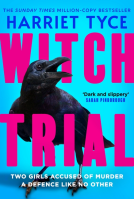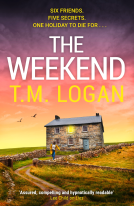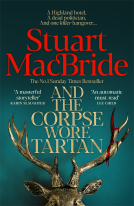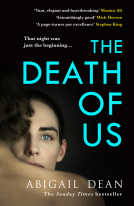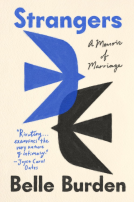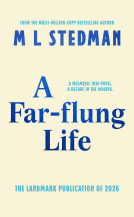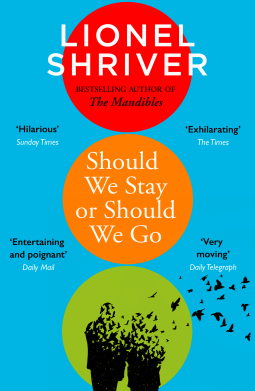
Should We Stay or Should We Go
by Lionel Shriver
This title was previously available on NetGalley and is now archived.
Send NetGalley books directly to your Kindle or Kindle app
1
To read on a Kindle or Kindle app, please add kindle@netgalley.com as an approved email address to receive files in your Amazon account. Click here for step-by-step instructions.
2
Also find your Kindle email address within your Amazon account, and enter it here.
Pub Date 10 Jun 2021 | Archive Date 1 Apr 2022
HarperCollins UK, HarperFiction | The Borough Press
Description
‘Hilarious… Fiery phrases spit and crackle. Disgust expands and bursts into belly laughs… a very funny book’ Sunday Times
‘Thought-provoking, timely, and extremely funny’ Metro
‘Shriver said that her favourite novels are those that pack both an intellectual and emotional punch. With Should We Stay or Should We Go, she’s added triumphantly to their number’ The Times
‘Witty and thought-provoking’ Woman’s Weekly
‘I think Shriver’s novels are wonderful… fun, smart and, perhaps because of their author’s unconventional political views, unlike anything else you’ll read’ Financial Times
‘Entertaining and poignant’ Daily Mail
‘Very moving… Shriver has the magic ability to make the reader invested in the fate – fates, I should say – of her characters’Daily Telegraph
‘Wickedly witty’ Spectator
‘Decidedly timely’ Scotsman
‘This sharp-elbowed satire is also a brusquely tender portrait of enduring love’ Washington Post
––––––––––––––––––––––––––––––––––-
Determined to die with dignity, Kay and her husband Cyril – both healthy and vital medical professionals in their early fifties – make a pact: to commit suicide together once they’ve both turned eighty.
A lot can change in thirty years, however…
By turns hilarious and touching, playful and grave, Should We Stay or Should We Go portrays twelve parallel universes, each exploring a possible future for Kay and Cyril. Do they honour their agreement? And if not, will they live to regret it?
‘Some books become so popular that the lucky author can thereafter churn out any old cobblers, confident in the knowledge that it will be published and find an audience. Lionel Shriver never took that easy route’ Irish Independent
Available Editions
| EDITION | Ebook |
| ISBN | 9780008458584 |
| PRICE | £7.49 (GBP) |
| PAGES | 400 |
Average rating from 19 members
Featured Reviews
 Reviewer 679083
Reviewer 679083
In her latest novel, Lionel Shriver brings in themes and devices from many of previous (and very varied) books. There's the alternate versions seen in 'Post Birthday World', the speculative fiction of 'The Mandibles', the themes of overpopulation and life expectancy from 'Game Control, and the intense political commentary of - well, most of them. Shriver even includes passing mentions of characters from some of these other novels, and even to herself - a device I always find irritating as I feel it breaks the 'fourth wall' (to borrow from theatre terminology), but other readers might find that fun and enjoyable.
The book starts with introducing the characters and concept. Cyrus and Kay are an NHS doctor and nurse. They decide to commit suicide when they both reach the age of 80, in 2020, to avoid the indignities of older age. The remaining twelve chapters offer alternate versions of what happened next. These range from the prosaic to the fantastical, the extremely depressing to the unrealistically wonderful. In one, the pair are cryogenically frozen and wake up in a distant future - an experience nowhere near as interesting and pleasant as most literature imagines it. In another they end up trapped in a hellish old people's home. Sometimes one of them dies and not the other. Sometimes they experience various degrees of serious illness and disability, other times they do not.
It's a clever way of looking at the consequences of life changing decisions and the whole debate about euthanasia, ageing, and population dynamics. Some of the futures would have justified their decision to 'bow out' voluntarily as a good one, others would have shown it to be a very bad idea. The trouble with real decisions of this nature is that you have no way of knowing which outcome you'll get. Although it should be obvious from the blurb, it's worth noting specifically that suicide is a strong theme of this novel and therefore those who avoid this topic should not read.
All in all, it's an interesting read and full of Shriver's usual unflinching social commentary and dissection of human nature. It's not a very happy book - it's often downright depressing. I don't always agree with the opinions of Shriver's characters, but she always puts them across well. The alternate futures are varied and different enough (but also with enough cross-relevance) to remain interesting. Unfortunately, the pessimistic scenarios seem more plausible than the optimistic ones, which leaves you with the sense that the only realistic options would be unhappy ones. Most of the scenarios are written too extremely (in my opinion) although that might be differentiate them better. They all serve quite well to make the point that you don't know what the future holds and if you absent yourself from it, you'll never know.
If you enjoy literary fiction, and Shriver's other novels, I think you are likely to enjoy this one. I certainly prefer it to her last couple of books. It's an ambitious idea and is up-to=the-minute (as of mid 2021) relevant. Book groups could get a lot out of it as there is plenty to discuss. For example, which optional ending do readers think is the most likely, and which did they enjoy the most. Was their suicide pact ultimately a terrible idea or a sensible one? I'm not sure it's possible to answer these questions definitively even once you've read the book, but you could certainly have a great discussion about it.
Readers who liked this book also liked:
Clare Chase
Mystery & Thrillers
Elly Vine
General Fiction (Adult), Mystery & Thrillers, Women's Fiction

